Are Maine Coons Important Facts About Cat Allergies and Maine Coons
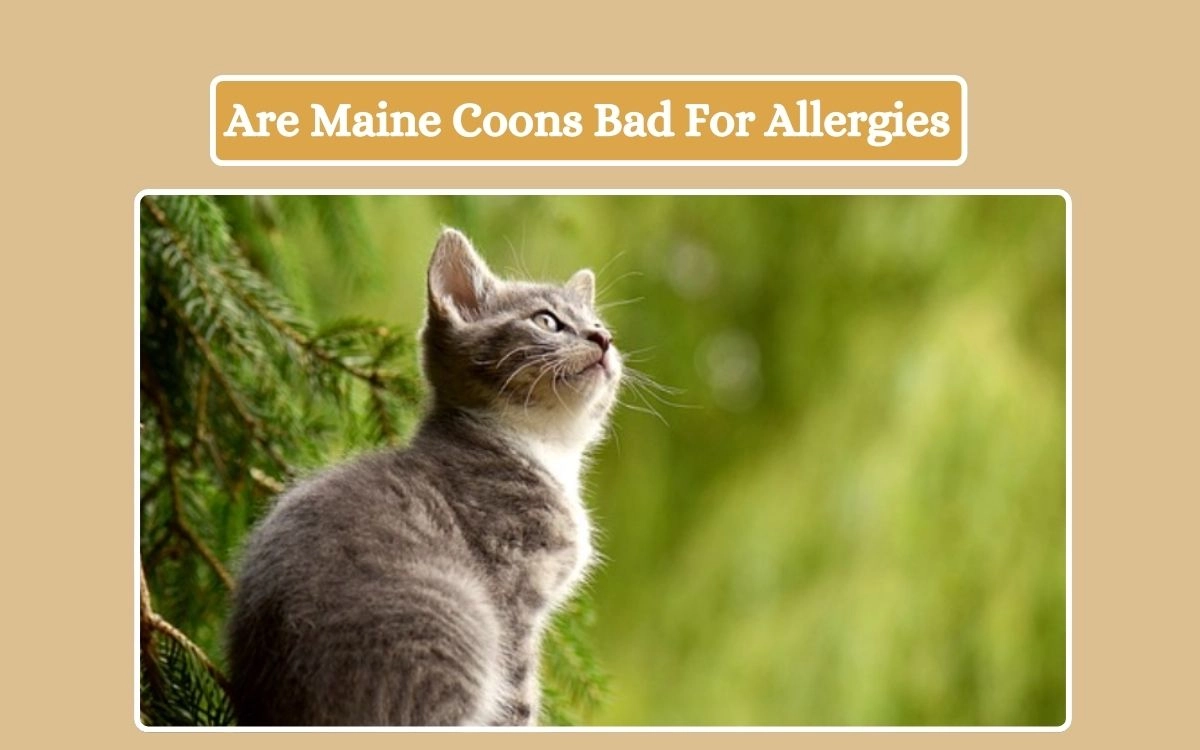
Introduction
Among the many varieties of felines known to mankind, Are Maine Coons Bad For Allergies, cats stand out as one of the most popular breeds. In general, Are Maine Coons Important Facts About Cat Allergies and Maine Coons, they have a large body size, possess tufted ears and bushy tails, and are extremely friendly. With their friendly nature and stunningly good looks, it is little wonder that the nickname “gentle giant” has stuck. But regarding, the perennial question seems to be: Are Maine Coons non-allergenic? This article will delve into the truth, what exactly the place of Maine Coons is in the scheme of things, and effective ways to deal with allergies while still being able to have these magnificent animals as friends.
Understanding Cat Allergies
In most instances, cat allergies are brought about by a protein. This protein is present in the saliva of a cat, on its skin, and even in its urine. When cats groom themselves, this protein covers skin and fur. As this saliva dries up, the protein turns into minute chips, which go into the air through dander and can further cause allergic reactions to hypersensitive people. Contrary to this, the length of hair on the feline body does not relate directly to its potential allergy potential, but it is actually the protein.
Debunking Myths: Long-Haired Cats are Not More Allergenic
Long-haired cats, such as Maine Coons, are thought by some to automatically be more allergenic because they shed hair. Actually, the fact is a little more complicated. Where it would appear that long-haired cats are bigger culprits, the protein responsible for allergic reactions, in saliva and dander, not the fur, itself, causes them. Some short-haired breeds can produce as much, if not more, as their long-haired counterparts. The amount of fur may affect the amount of allergen released to the environment, but it does not determine allergen production.
Maine Coons and Allergies
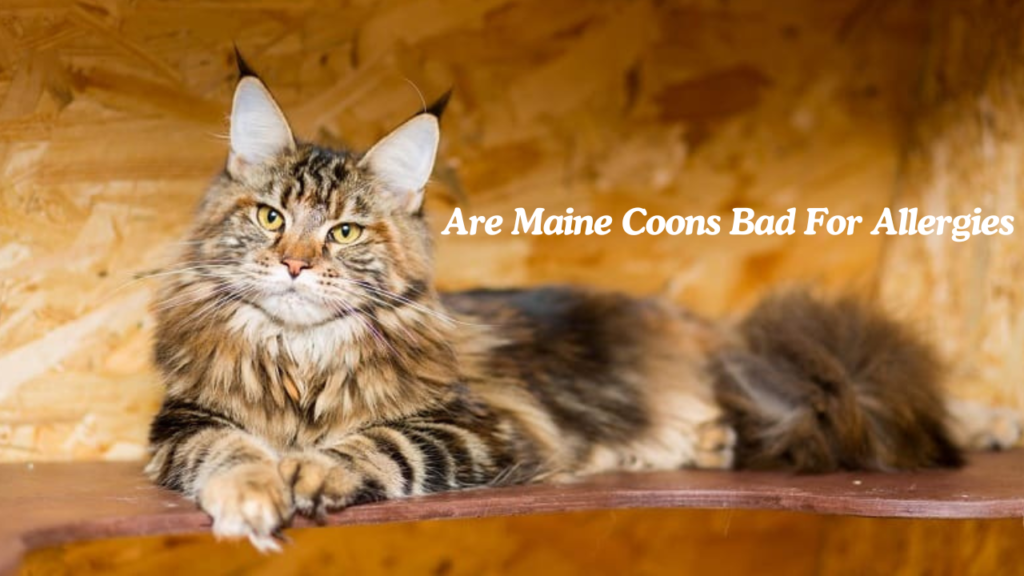
Allergen Production: Where Maine Coons Stand Compared with Other Breeds
Like all other feline breeds, Maine Coons produce the protein. No evidence has been put forth indicating that Maine Coons produce this protein in significantly higher amounts-or lesser amounts-than other cats do. This might be due to the fact that just like other breeds, each cat is different in its own special way; production levels vary between individual cats of the same breed. Therefore, Maine Coons cannot be termed hypoallergenic, and people with severe allergies steer clear of them as pets.
Factors Affecting Allergies: Individual Sensitivity and Environmental Influences
Allergies to cats are very individualistic. Some people can have really bad reactions with one cat, while symptoms can remain very minimal around another. However, environmental considerations, like cleanliness of the home, grooming frequency, and the use of air purifiers, are tremendous factors that influence how well the allergens are managed. Maine Coons have such beautiful coats, which means they can sometimes contribute to airborne dander in higher volume if they are not regularly groomed, thereby increasing allergic symptoms.
Mild Reactions Possible: Maine Coons and Mild Allergies
Of course, some individuals with lighter allergic reactions find that they can tolerate the Maine Coons more than any other breed. This could be because of the individualistic activity of producing allergens or how these cats groom themselves. This does not apply to all, and anyone with allergies should be cautious when trying to adopt a Maine Coon. Spending time with this breed provides insight into how one’s body is going to react with this breed.
Tips for Allergy Sufferers
If you are a cat-allergic person or have one at home but still want to own a Maine Coon, this is what you should do to decrease the allergic reaction
1. Regular Grooming: Decrease Dander and Shedding
One of the most efficient ways to deal with a cat allergy is through regular grooming. For this reason, the Maine Coons need regular grooming to keep their thick fur in good condition. Besides, this will minimize the quantity of dander and loose hair in your house. You want to consider brushing your Maine Coon at least twice a week and more frequently during shedding seasons. Grooming not only helps with dander control but also keeps your cat’s coat clean, thus helping to minimize the allergens that end up coating your furniture and in the air.
2. Frequent Cleaning: Minimizing Allergen Exposure in Your Home
Keeping your home clean is one of the major things when dealing with cat allergies. Regularly vacuum floors, furniture, and any fabric surface with a vacuum capable of picking up small particles, including dander, by having a HEPA filter. Wash the bedding of your cat often and all blankets and cushions he uses on a continuing basis. Dust surfaces frequently to avoid accumulation of allergens. The less dander you have around your living space, the less you will be exposed to allergens.
3. Air Purification: Minimizing Airborne Allergens with HEPA Filters
HEPA is an acronym for High Efficiency Particulate Air, and air purifiers with these filters can pick up air allergens very effectively. Place them in public places, particularly where your Maine Coon is around most of the time. A good quality air purifier should minimize the concentration of allergens in the air for easy breathing among people with such allergies. Besides, good ventilation in a house will make the particles of allergens disseminate and improve air quality altogether.
4. Professional Testing: Comprehensive Allergen Report and Expert Counselling on Allergy
Before getting the Maine Coon, one would be advised to have professional tests for allergies. This will indicate specific causes and the degree to which the allergy to cats is pronounced. Consultation with an allergist could provide you with personalized recommendations and even treatment modalities in case allergy shots or medication could be initiated for the management of your symptomatology. Knowing your allergies will also help you make an informed decision on whether a Maine Coon is just the right kind of pet to have in your household.
Conclusion
While Maine Coons are not hypoallergenic, they can, with proper management, be a viable solution for those people with light allergies. A basic understanding of how cat allergies work, such as information about the protein Fel d 1, along with proactive steps like regular grooming, keeping their surroundings clean, and air purifiers, often enables the allergic to live quite happily with these personality-plus cats. But it is good to note that allergic reactions of the body will always differ in every individual. If one is thinking of making a Maine Coon a companion, they must be able to stay with a Maine Coon and even seek the opinion of a health professional and ask some questions.

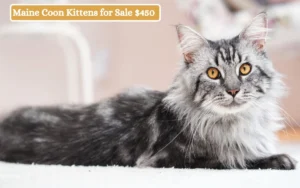

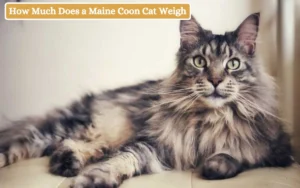
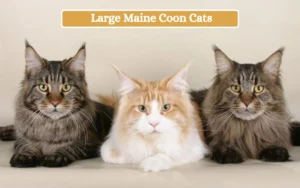
1 thought on “Are Maine Coons Important Facts About Cat Allergies and Maine Coons”